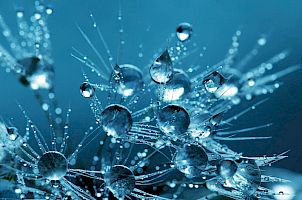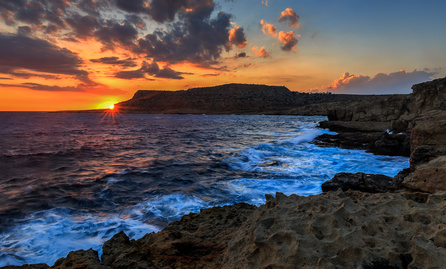Links zum Thema Bewusstsein / Consciousness
Literatur
Literature (engl.)
- Charles T. Tart, Ph.D. (1937-2025) US American psychologist, parapsychologist, consciousness and ESP researcher, co-founder of transpersonal psychology, president of ISSSEEM, developer of Remote viewing, co-founder of the Stanford Research Institute (a federally-funded program investigating psychic abilities in humans) in 1972, author, classic anthology Altered States of Cons-
ciousness, John Wiley & Sons, 1st edition June 1969, Psychological Processes, revised 3rd edition June 1990
- Russell Targ (*1934) US American physicist, ESP researcher, developer of Remote viewing, co-founder of the Stanford Re-
search Institute (SRI) federally-funded program investigating psychic abilities in humans, 1972, author, Miracles of Mind. Explo-
ring Nonlocal Consciousness and Spiritual Healing, New World Library, February 1998
- Bernardo Kastrup (*1974) Dutch philosopher, computer scientist, author, Why Materialism Is Baloney. How True Skeptics Know There Is No Death and Fathom Answers to Life, the Universe, and Everything, John Hunt Books, 25. April 2014
↑
Externe Weblinks
- Wikipedia-Einträge Bewusstsein, Entropie, Negentropie Eingeführt von Erwin Schrödinger (1887-1961) österreichischer Physiker, Wissenschaftstheoretiker, Nobelpreisträger für Physik, 1933, Autor, Was ist Leben? – Die lebende Zelle mit den Augen des Physikers betrachtet, Piper Taschenbuch, München, 11. Auflage Oktober 1989
- Philolex-Eintrag Bewusstsein, Weltbewusstsein
Linklose Artikel
- Artikel Das Bewusstsein. Nur Funken der Neuronen? Die Wissenschaft auf der Suche nach dem Geheimnis unseres Geistes, präsentiert von dem deutschen Magazin "Was ist Erleuchtung?", Craig Hamilton, US-amerikanischer Pionier in emergierender evolutionärer Spiritualität, WIE-Chefredakteur (1998-12/2006), Ausgabe 17, 2005
↑
External web links (engl.)
- Wikipedia entries Consciousness Entropy, Negentropy [negative entropy] Introduced by Erwin Schrödinger (1887-1961) Austrian physicist, theoretical biologist, father of quantum mechanics, Nobel laureate in physics, 1933, popular-science book What is Life?, 1943
↑
Audio- und Videolinks
Audio and video links (engl.)
Deleted media offerings
- Removed video presentation by Graham Hancock grahamhancock.com (*1950) British archeo-astronomist, shamanic seeker, journalist, writer, The War on Consciousness. Visions for Transition. Challenging existing paradigms and redefining values (for a more beautiful world), presented by TED Talks, Whitechapel, 12. January 2013, YouTube film, 18:45 minutes duration, posted
14. March 2013
Mother Ahauasca gave Hancock an encounter with hell and death thereby pulling him off of his destructive path of 24 years of addictive
abuse of cannabis.
↑
Audio and video links (engl.) – Thomas Campbell
- Video presentation by Thomas Campbell (*1944) US American physicist, consciousness researcher, Monroe Institute (TMI), London School of Economics, author on physics, metaphysics and the consciousness connection, YouTube film, recorded
22. February 2008, posted 13. April 2008
Nature of reality, the normal and the paranormal, mind and matter, physics and metaphysics, philosophy and theology in terms of consciousness
- Physics, Metaphysics & the Consciousness Connection, part 1 of 18, 9:00 minutes duration
- Physics, Metaphysics & the Consciousness Connection, part 2 of 18, 9:00 minutes duration
- Physics, Metaphysics & the Consciousness Connection, part 3 of 18, 9:01 minutes duration
- Physics, Metaphysics & the Consciousness Connection, part 4 of 18, 9:00 minutes duration
- Physics, Metaphysics & the Consciousness Connection, part 5 of 18, 9:00 minutes duration
- Physics, Metaphysics & the Consciousness Connection, part 6 of 18, 9:00 minutes duration
- Physics, Metaphysics & the Consciousness Connection, part 7 of 18, 9:01 minutes duration
- Physics, Metaphysics & the Consciousness Connection, part 8 of 18, 9:00 minutes duration
- Physics, Metaphysics & the Consciousness Connection, part 9 of 18, 9:00 minutes duration
- Physics, Metaphysics & the Consciousness Connection, part 10 of 18, 9:00 minutes duration
- Physics, Metaphysics & the Consciousness Connection, part 11 of 18, 9:00 minutes duration
- Physics, Metaphysics & the Consciousness Connection, part 12 of 18, 9:00 minutes duration
- Physics, Metaphysics & the Consciousness Connection, part 13 of 18, 9:00 minutes duration
- Physics, Metaphysics & the Consciousness Connection, part 14 of 18, 9:00 minutes duration
- Physics, Metaphysics & the Consciousness Connection, part 15 of 18, 9:00 minutes duration
- Physics, Metaphysics & the Consciousness Connection, part 16 of 18, 9:00 minutes duration
- Physics, Metaphysics & the Consciousness Connection, part 17 of 18, 9:00 minutes duration
- Physics, Metaphysics & the Consciousness Connection, part 18 of 18, 8:52 minutes duration
- Video keynote speech presentation by Thomas Campbell (*1944) US American physicist, consciousness researcher, Monroe Institute (TMI), London School of Economics, author, My Big Toe – Consciousness: The Endless Frontier, sponsored by the
US American Monroe Institute (TMI), Virginia, 22nd Professional Seminar, March 2010, recorded by "Lightning Strike Books", Vimeo film (complete version), posted 17. April 2010, and YouTube film version (12 parts), 2:04:48 duration, posted 15. April
2008
- List of audio (radio) interviews with Thomas Campbell (*1944) US American physicist, consciousness researcher, Monroe Institute (TMI), host Robert Monroe, London School of Economics, presented by Radio Interviews, starting June 2009
- Video interview with Thomas Campbell (*1944) US American physicist, consciousness researcher, Monroe Institute (TMI), London School of Economics, author, My Big Theory of Everything, presented by the US American Conscious Media Network
via Gaia TV, host Regina Meredith, 73:14 minutes duration, posted April 2010 Subject to fee
↑
|







